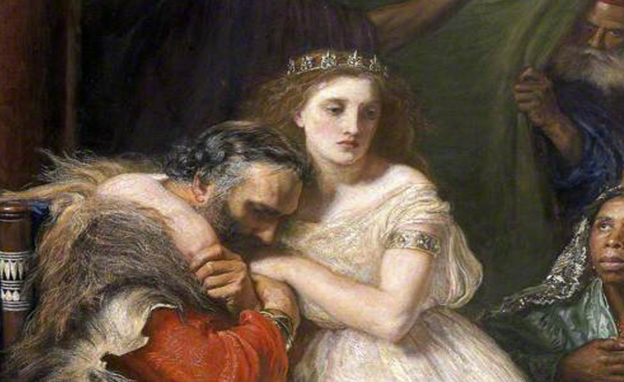We all say or do foolish things, or make stupid promises. Sometimes we wish we had stopped rebelling against God earlier, or paid more attention to God’s commands. Most of the time they don’t have dire, life-changing consequences. Sometimes, they do.
Jephthah’s tragic vow sits firmly in the life-changing consequences camp, both for him and for his daughter. His vow, and its fulfilment, is so serious it completely overshadows his deliverance of Israel from Ammon. It reminds us of the importance of knowing God’s Word to serve him rightly, being cautious in our promises, and that any earthly deliverer is flawed at best compared to God in Christ.
While Jephthah’s history lesson had corrected the misinformation that Ammon’s king was attempting to use as the argument for invasion, the Ammonite king was not for turning (v.28) and so a fight was inevitable.
Since that was the case, the Spirit of the LORD empowered Jephthah to specially lead and deliver Israel from their enemies, as he went through Gilead and Mannaseh to gather together an army to take on Ammon (v.29).
During this recruitment campaign, Jephthah uttered a vow which the text will later make clear was a tragic promise to make! He vowed to God that “whatever comes out from the doors of my house to meet me when I return in peace from the Ammonites shall be the LORD’s, and I will offer it up for a burnt offering” (vv.30-31).
The writer of Judges next summarises Jephthah’s victory over Ammon in broad outline. There is only a brief description of the geographical movement to meet and defeat the enemy because God “gave them into his hand” (v.32). That the victory was comprehensive is only related by the short phrase “the Ammonites were subdued before the people of Israel” (v.33).
The reason is the greatness of Jephthah’s victory over Ammon is spoiled by what came next. Remember Jephthah’s vow; as he approached home at Mizpah, who greeted him but “his daughter… to meet him with tambourines and with dances” (v.34). While Jephthah’s daughter greeted him with joy, her joy would soon turn to sorrow.
This was compounded because “she was his only child; besides her he had neither son nor daughter” (v.34). There would be nobody else to carry on the family line if Jephthah went through with his vow.
Jephthah realised his predicament, he tore his clothes in grief at the sight (v.35). He believed he had to keep his vow, even though it clearly breached God’s commandments about human sacrifice (Deut. 12:31, etc) and ignored the Law’s escape clause for rash vows (Lev. 5:4-6).
The story grinds on. Jephthah’s daughter submits to Jephthah’s intention to keep his vow (v.36). The two months reprieve to grieve her inability to carry on the family line only draws out the inevitable (vv.37-8). After two months, she returned and Jephthah fulfilled his vow (v.39), leading to a custom of the local women mourning her loss (v.40).
Some suggest that the mourning over her virginity and Jephthah’s knowledge of Israel’s history and evidence that he worshipped God mean he cannot have possibly killed her but instead submitted her to a life of monastic service (a Judges-era nun). I sadly agree with those who think the plainest reading of the text is what happened. Jephthah offered his daughter as a burnt sacrifice to God, fulfilling his tragic vow.
This was a sinful vow, which Jephthah should not have kept. There is no evidence in the text that God approved; simply, the event is reported. That Jephthah did completely overshadowed his victory over Ammon, and shows the depths that Israel had fallen to in their decline.
We cannot assume Jephthah did not know the prohibitions, but perhaps Jephthah thought those only applied to foreign gods. Or the circumstances and his piety led him to believe this was an exception to the general rule. Sometimes Old Testament believers did the wrong thing for the right reason, yet still sinned (eg, Uzzah, 2 Sam. 6).
This shows that it is not enough to know our history, to know about God, but we also need to know God and his will revealed in Scripture. If we approach circumstances like Jephthah according to our limited knowledge and our assumptions, we can still end up sinning.
Knowing God, in terms of his nature and his character, not just God’s acts, is important to following God and serving him in a way which pleases him.
It also reminds us to be careful about our vows and our promises. Vows are serious, and should not be made lightly, nor made in a way which opens the door to sin.
Thirdly, this passage reminds us that human deliverers are flawed at best. Jephthah’s rash vow and his sinful fulfilment of it show that he could not be Israel’s ultimate saviour. No sinful man can. Only Jesus, sinless, could deliver us from our sinful place in a way which brings joy out of tragedy, instead of tragedy out of joy.


